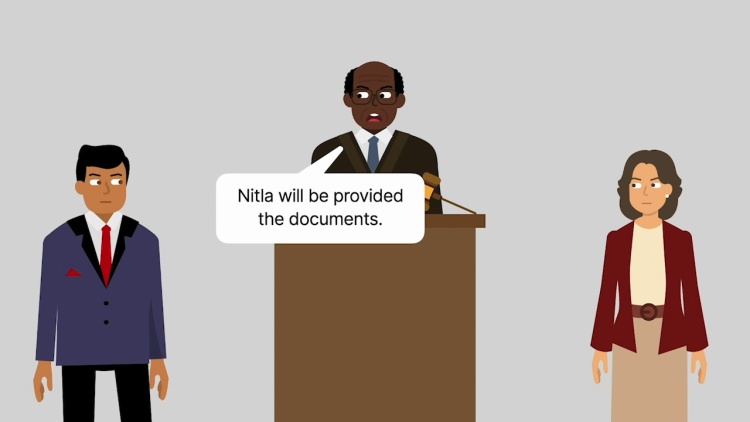In re Nitla S.A. de C.V.
Texas Supreme Court
32 S.W.3d 419 (2002)
- Written by Rose VanHofwegen, JD
Facts
Nitla S.A., a Mexican pharmaceutical company, sued Bank of America (the bank) for allegedly misappropriating millions of dollars in deposits. Nitla asked the bank to produce certain documents during discovery. The bank refused and produced a privilege log asserting attorney-client and work-product privileges. Following a hearing and in-camera review, the court ordered the bank to produce numerous documents that the bank had identified as privileged. The bank asked for a stay while it decided whether to seek emergency relief from the appellate court. The trial court conducted a second hearing. The bank again requested a stay, claiming it would be irreparably harmed if Nitla’s counsel reviewed the documents, and that Nitla’s counsel could be disqualified if the appellate court later found the documents privileged. The trial court nonetheless partially granted the motion and handed the documents to Nitla’s counsel. The bank faxed Nitla’s counsel later that day advising that the bank would seek mandamus and requesting counsel not to review or distribute the documents. Relying on the trial court’s order, Nitla’s counsel reviewed the documents. The bank filed for mandamus, which the appellate court abated to allow a new trial court judge to review the documents. The new judge agreed that the documents were not privileged but ordered Nitla to return the documents pending appellate review. After the appellate court found most of the documents privileged, the bank moved to disqualify Nitla’s counsel. The trial court declined, finding (1) Nitla’s counsel had not acted unprofessionally, violated any disciplinary rules, or wrongfully obtained the documents; (2) no evidence that Nitla’s counsel had changed its trial strategy based on the privileged documents; and (3) less severe alternatives than disqualification could prevent any unfair advantage. The bank appealed, asserting that it was irreparably harmed, that Nitla’s counsel improperly reviewed the documents knowing the bank would appeal, and that disqualification would not harm Nitla. Nitla countered that the bank did not prove actual harm or grounds for disqualification with sufficient specificity.
Rule of Law
Issue
Holding and Reasoning (Per curiam)
What to do next…
Here's why 907,000 law students have relied on our case briefs:
- Written by law professors and practitioners, not other law students. 47,100 briefs, keyed to 996 casebooks. Top-notch customer support.
- The right amount of information, includes the facts, issues, rule of law, holding and reasoning, and any concurrences and dissents.
- Access in your classes, works on your mobile and tablet. Massive library of related video lessons and high quality multiple-choice questions.
- Easy to use, uniform format for every case brief. Written in plain English, not in legalese. Our briefs summarize and simplify; they don’t just repeat the court’s language.





